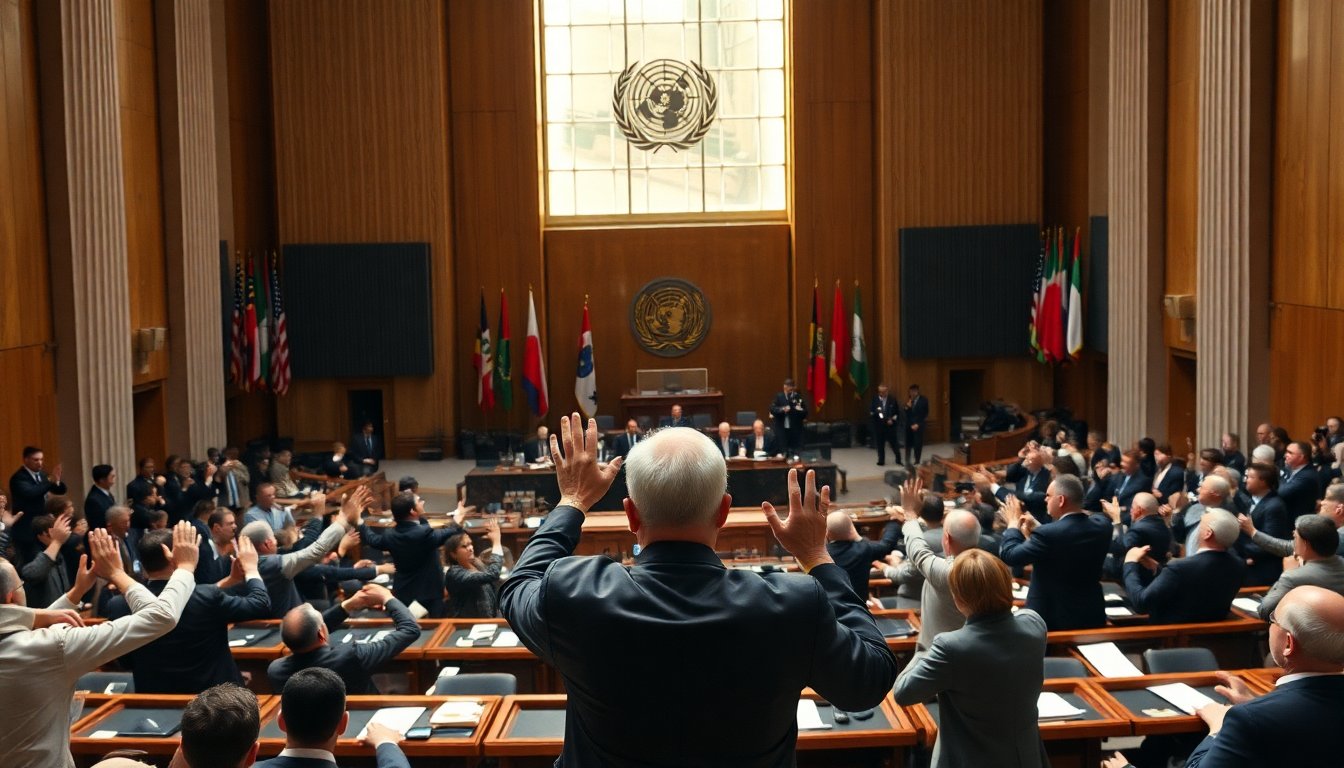Table of Contents
In a pivotal moment at the United Nations, Israeli Prime Minister Benjamin Netanyahu delivered a speech that underscored his political isolation. The atmosphere in the hall was tense, with many delegates choosing to walk out in protest, reflecting growing discontent with Israel’s policies. Netanyahu utilized this platform to firmly reject the concept of a Palestinian state, a position that has attracted considerable criticism both domestically and internationally.
As he addressed the assembly, it became evident that Netanyahu’s stance is increasingly isolated, not only in international diplomacy but also within the broader discourse on peace in the region. His remarks responded to pressure from various factions advocating for a two-state solution, a vision central to peace negotiations for decades.
Netanyahu’s unwavering stance
During his address, Netanyahu articulated a clear commitment to combatting Hamas, the militant group governing the Gaza Strip. His rhetoric included assurances that Israeli forces would continue to act against what he characterized as terrorism. This determination reflects a longstanding narrative within Israeli politics prioritizing security over diplomatic engagement.
Rejection of Palestinian statehood
Netanyahu’s strong rejection of a Palestinian state was a focal point of his speech. He argued that establishing such a state would pose a direct threat to Israel’s existence, framing the issue as a matter of national security. This viewpoint resonates with a significant segment of the Israeli electorate, who perceive the conflict through a lens of self-preservation and historical grievances.
Conversely, many international observers and local advocates contend that denying Palestinian sovereignty exacerbates tensions and undermines the prospects for lasting peace. The divide between these perspectives illustrates the ongoing struggle within the international community to establish a balanced approach to the Israeli-Palestinian conflict.
The impact of international relations
As Netanyahu’s isolation grows, the implications for Israel’s future relations with the global community are significant. The walkout by numerous delegates during his speech signaled a rising impatience with Israel’s policies, particularly concerning the treatment of Palestinians. This discontent extends beyond traditional adversaries to include former allies, who are increasingly critical.
Shifting dynamics in global politics
The current geopolitical landscape presents unique challenges for Netanyahu. As various nations reassess their diplomatic ties with Israel, the Prime Minister’s hardline policies may lead to increased international isolation. The consequences of this shift could be profound, affecting everything from trade agreements to military alliances.
Furthermore, the emergence of progressive movements within many countries is prompting calls for a reevaluation of support for Israel. This trend indicates a changing tide in global politics, where discussions about human rights and justice for Palestinians are gaining prominence.
Netanyahu’s recent address at the U.N. highlights a critical juncture for Israel as it navigates an increasingly complex international environment. His rejection of Palestinian statehood, framed through the lens of security, contrasts sharply with the growing calls for diplomatic engagement and resolution. As the political landscape continues to evolve, the pressing question remains: can Israel reconcile its security concerns with the urgent need for peace and coexistence?


